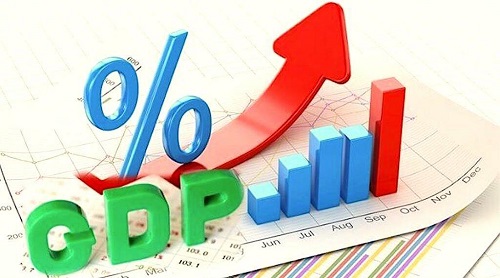This post has already been read 1478 times!
Nigeria experienced a 3.46% Gross Domestic Product (GDP) growth in the fourth quarter of 2023, totalling N21.77 trillion in finished goods and services produced within the country. This growth was slightly lower than the previous year (3.52%) but higher than the third quarter of 2023 (2.54%). Despite this apparent economic growth, Nigerians have not yet felt the positive effects on their well-being, as they continue to face economic hardships caused by high inflation and living costs.
In January, Nigeria recorded a record-high inflation rate of 29.90%, with food inflation at 35.42%, significantly reducing the purchasing power of its citizens. This economic strain has led people in Niger, Kano, Kogi, Oyo, and Lagos states to protest against the prevailing hardships. The Nigeria Labour Congress also plans to hold nationwide protests on February 27-28, highlighting the disconnect between GDP growth figures and the reality of people’s daily struggles.
Economists like Mazi Okechukwu Unegbu and Prof Godwin Oyedokun attribute the failure of Nigeria’s GDP growth to translate into prosperity to factors such as rising unemployment, inflation, foreign crises, corruption, poor governance, and dependence on oil. They emphasize that addressing these underlying issues, such as promoting local production and combating corruption, is essential for inclusive and sustainable economic development.
To ensure that GDP growth leads to real economic growth and improved well-being for citizens, experts like Mr. Idakolo Gbolade stress the need for aggressive implementation of government policies in key sectors like agriculture, oil and gas (exploration and refining), manufacturing, and small and medium-sized enterprises (SMEs). Gbolade criticizes the slow pace of agricultural revolution promised by President Bola Ahmed Tinubu’s administration and advocates for increased economic activity, internal food security, and access to loans for the manufacturing sector and SMEs to stimulate the economy and drive growth.
In summary, while Nigeria’s GDP growth is a positive indicator of economic progress, the failure to translate this growth into tangible benefits for the population underscores the urgency for the government to address critical issues hindering inclusive and sustainable development. Implementing policies that promote local production, combat corruption, enhance infrastructure, and support key sectors like agriculture and manufacturing will ensure that economic growth leads to improved well-being and prosperity for all Nigerians.



